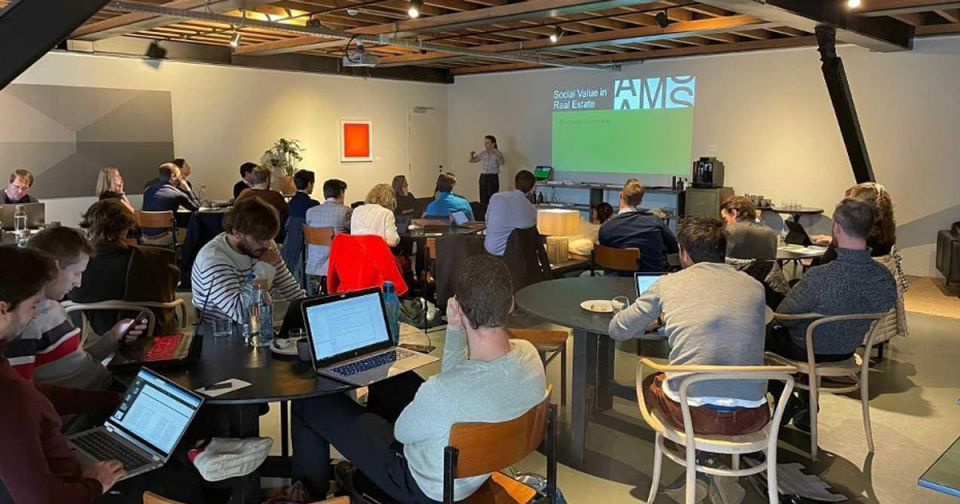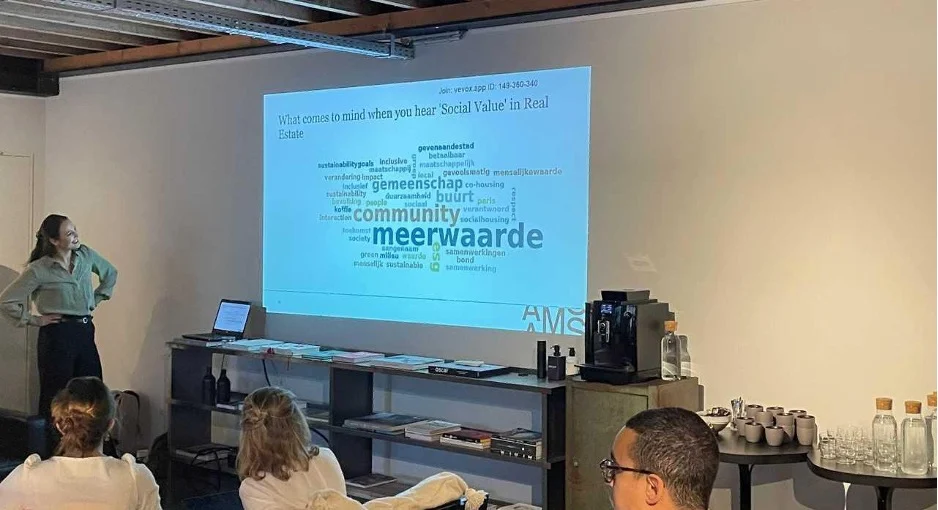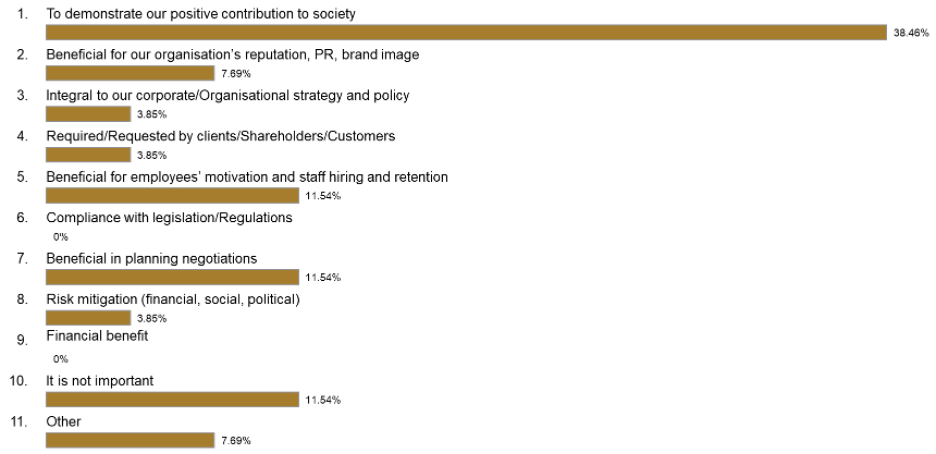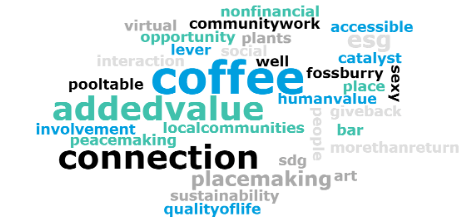From the LAMMP Chair 'Social Values in Real Estate' the second-year Master in Real Estate Management (MRE) students received a guest lecture on the impact of real estate on welfare. We were curious about their experiences and views now that as near-alumni they will soon help shape the real estate sector in Belgium and beyond.

What even is social value?
‘Social value' still appears to be a very unclear concept. This was proven by the equally abstract terms the students linked to it, such as community, added value and sustainability. Hence the need to zoom in on the subject, so the students know exactly what social value can mean for the real estate industry.
To clarify what social value is, we make a distinction between projects in their development phase and completed projects.
Social value in projects under development
Here social value relies mainly on placemaking; involving the environment in the development process and the well-being of the wider community.
Social value in completed projects
During the management and operations phase, social value is more about safety and the well-being and satisfaction of the building's occupants and users.

Technology offers a lot of possibilities to support general well-being. The technological support for telework offers a lot of potential for 'Virtual Togetherness', to create equality between home workers and colleagues in the office. In addition, we are already seeing experiments with virtual reality meetings, virtual platforms for knowledge sharing and social proximity. In the near future, we may also see the realization of the Metaverse, which Facebook, among others, is pursuing.
Why does the real estate industry have an interest in social value creation? – The value vs. values-based approach
Sustainability has long been a major theme for the real estate industry and is approached in two ways.
- The ‘values-based approach’ makes sustainability interventions because it values the environment and social well-being.
- The ‘value-based approach’ is financially driven and approaches sustainability rationally, according to the set costs and benefits.
There are many motivations for choosing a sustainable approach. The majority of students (38.5%) primarily want to make a positive contribution to society. Remarkably, none of the students want to create social value for financial reasons - or at least not primarily.
Why is creating social value important to you?

The European real estate sector is responsible for 40% of our energy consumption and 36% of greenhouse gases. Although circular and green buildings are gaining popularity to reduce the sector's carbon footprint, sustainability is not just about the environment.
The importance of social well-being
Social well-being is an indispensable component of a sustainable society, and the real estate world has its responsibility there as well. Europeans spend on average 90% of their time indoors. This has an undeniable impact on our physical, mental and social well-being. In the aftermath of the pandemic, several opportunities are presenting themselves to rethink real estate with a greater focus on people and well-being. According to the vast majority of students (91%) this responsibility does lie with the real estate industry.
Is it the Real estate community's responsibility to create social value?

Is there a business case for Social Value in real estate?
Despite expectations, social value is not at odds with financial return - the guest lecture emphasized this with a short module on sustainable finance. Social welfare is likely to emerge as an important domain for real estate professionals and investors to distinguish themselves. Moreover, the increasingly stringent legislation on sustainability is even extending to the social domain. As a result, projects that do not focus on this issue will receive less and less funding.
Investors are also increasingly paying attention to ESG (Environment, Social and Governance) reporting as part of their fiduciary duty, but it remains under the radar for most students. A mere 20% already reports on ESG.
Furthermore, building certifications such as BREEAM and LEED are also popular, although they focus mainly on environmental aspects and less on the social or governance component.
Do you (does your firm) measure or report on ESG?



Concrete interpretation of social value
In the word cloud exercise at the end of the guest lecture, social value took on a more concrete meaning. In addition to placemaking, the importance of connecting elements also stuck out: good coffee, plants, art pieces and a pool table were remembered as essential elements of well-being. Our buildings are in good hands with the MRE students, as they are now a little more aware of the importance of 'Social Value in Real Estate'.

Want to learn more about our Executive Master in Real Estate?

comments0
You don't have the rights to read or add a comment.
Suggested Articles

